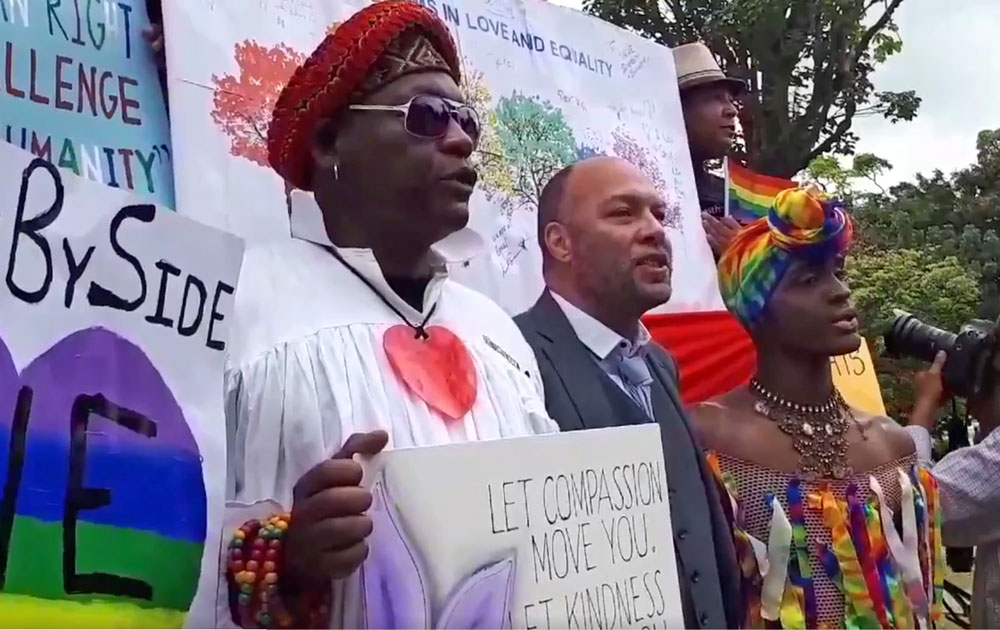Tally of nations with anti-gay laws edges back up to 66
Colin Stewart is a 45-year journalism veteran living in Southern…
Trinidad and Tobago reinstates anti-gay laws that were overturned in 2018.

By Colin Stewart and Rob Salerno
The slow, decades-long progress toward recognition of the human rights of LGBTQ people has encountered a setback with the March 25 decision by the Trinidad and Tobago Court of Appeal to reinstate that Caribbean country’s laws against homosexuality.
Because of an early 2025 adoption of a new homophobic penal code by the West African nation of Mali, the total number of nations with anti-homosexuality laws now stands at 66.
Before those reversals, the number of nations with laws against gay sex had fallen to 64 from more than 90 at the beginning of the 2000s. The latest countries to end the criminalization of same-sex intimacy are Namibia in Africa and Dominica in the Caribbean in 2024, Mauritius in the Indian Ocean and the Cook Islands in the South Pacific in 2023, following in the footsteps of Singapore in Southeast Asia, Antigua & Barbuda, Saint Kitts & Nevis, and Barbados in the Caribbean — all in 2022.
The Trinidad and Tobago case is now being appealed to the Privy Council in London, UK, Trinidad and Tobago’s highest court.
The original lawsuit, filed by Trinidadian/British activist Jason Jones, resulted in a High Court ruling in 2018 that the Trinidadian laws against buggery and indecency “are unconstitutional, illegal, null, void, invalid and of no effect to the extent that these laws criminalise any acts constituting consensual sexual conduct between adults.”
But in this week’s contrary ruling, the Appeals Court stated that Parliament, not the courts, have the responsibility to decide if buggery should be fully decriminalised.
Newsday of Trinidad and Tobago reported:
“The Court of Appeal has reduced penalties for acts of buggery (anal sexual intercourse) and other acts of serious indecency, while at the same time maintaining their criminal status.
“In a majority ruling, Justices of Appeal Nolan Bereaux and Charmaine Pemberton upheld an appeal by the Attorney General against a ruling by the High Court which deemed portions of local sexual offences law to be unconstitutional because they criminalised sexual relations between consenting adults of the same sex. Justice Vashiest Kokaram dissented.”
The Appeals Court reinstated buggery as a crime, but reduced the penalty from 25 years to five years in prison.




